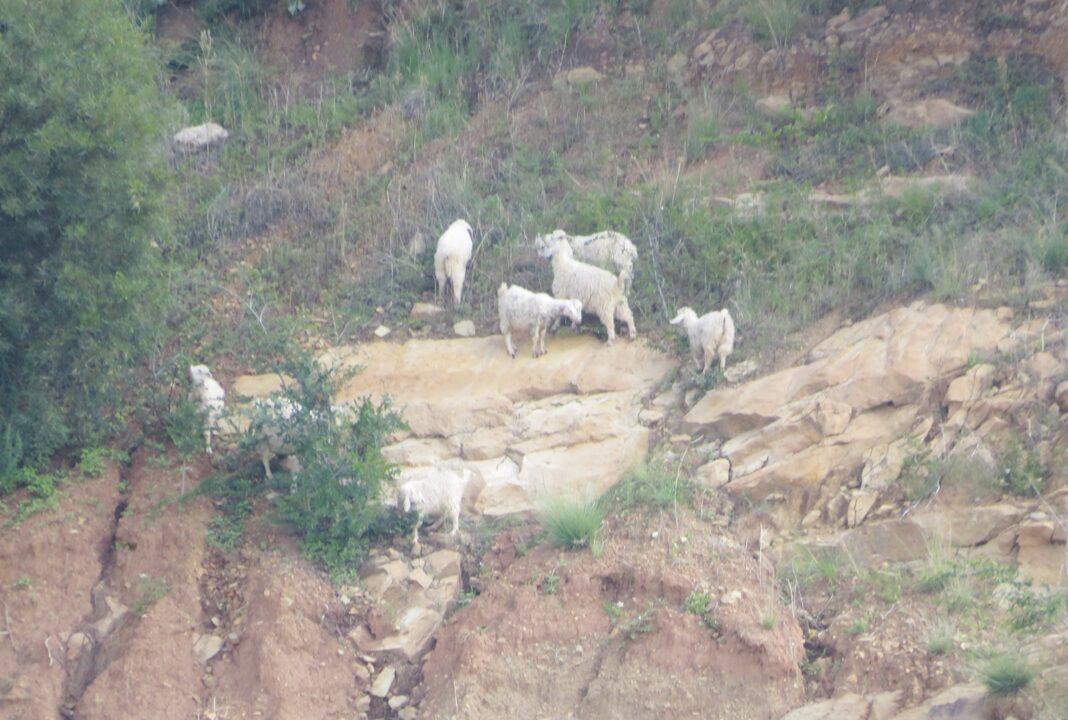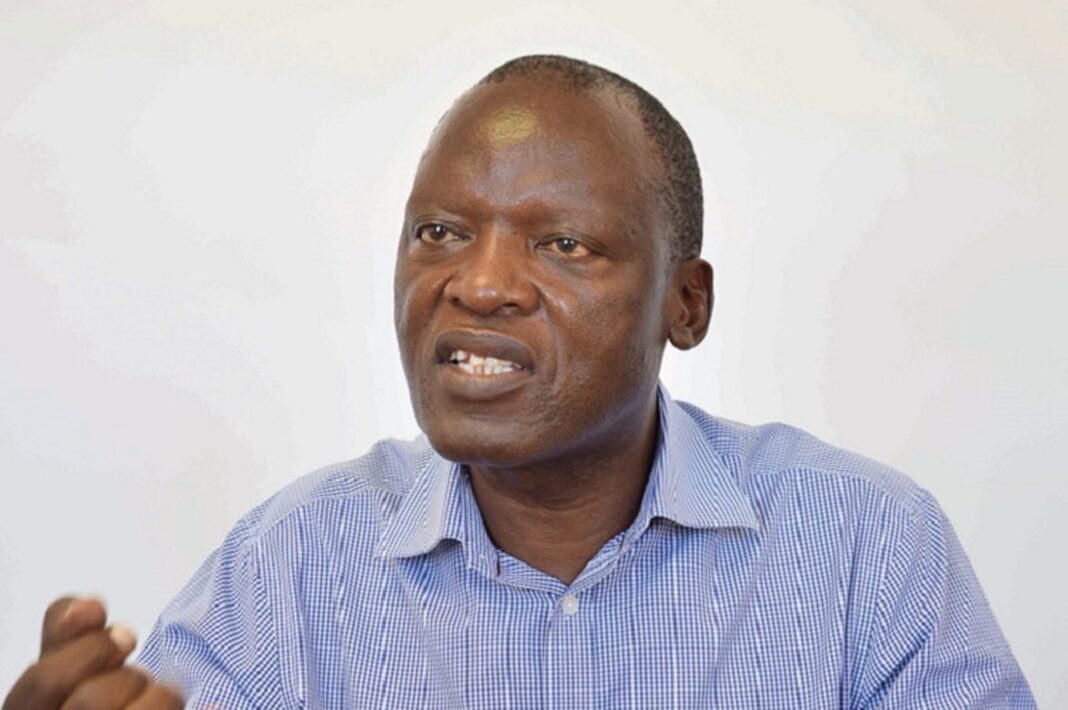By ‘Majirata Latela
Fears are mounting that persistent lack of proper range management practices, which causes a depletion of vegetation, could play a role in speeding up soil erosion and eventually, desertification.
Experts define desertification as a type of land degradation in drylands in which biological productivity is lost due to natural processes or induced by human activities whereby fertile areas become increasingly arid. They also describe it as the spread of arid areas caused by a variety of factors, such as climate change – particularly the current global warming – and overexploitation of soil as a result of human activity.
In order to arrest the situation, stern calls have been gaining traction, for Basotho to be conversant in harnessing efforts to protect the vegetation.
Lesotho Meteorology Services climatologist, Motebang Lebusa, this week alerted this publication to a topographic map of Africa’s vegetation illustrating a decline in surface soil and the wearing away of vegetation in some areas in Lesotho.
In Lesotho, this phenomenon is accelerated by protracted drought which is a result of climate change and human activities.
The ministry of forestry, range and soil conservation has said this week Lesotho is gradually becoming a desert as human activities take toll in contributing to the scare.
The ministry’s principal conservation officer, Palesa Lekeoane, has suggested desertification is a result of poor management of rangelands.
Despite communities being alerted to the looming catastrophe, she said overgrazing of livestock on rangelands still continues.
“Our communities still do not understand that it is their responsibility to ensure that their rangelands do not end up becoming a desert. They believe that it is the ministry’s responsibility alone.
“That is why you will find them still fighting over rangelands. Those who understand institutional arrangements for grazing end up feeling cheated. This is because those who do not understand what rangeland management is, will wake up in the middle of the night and let their animals graze on rangelands which have been secured for rehabilitation. This practice also causes conflict between communities,” Lekeoane said.
Added to the dilemma, she added, is climate change which significantly leads to increased droughts. She said during droughts, the soil is exposed to the sun for “a very long time” thereby making it vulnerable to the rains that may come. She said when the rain comes, the vulnerable soil is easily washed away.
“During the current rainy season, if one takes a look at our rivers now, the waters in the different rivers have taken colours of the different types of soil. This shows that there is too much soil that is being washed away by these heavy rains.
“Also, the soil nowadays gets washed away easily because many people are no longer into crop farming. A huge chunk of our productive generation have moved into South Africa while others have lost interest in that sector. This means most of our land has become unproductive thus making it vulnerable to harsh weathers,” she explained.
Lekeoane remarked that different type of livestock graze in different ways with small stock uprooting vegetation and as a result the likelihood of desertification to occur. Animals like cattle, she noted, preferred the longer part of the grass.
She warned that while many regard sheep and goats as causing vegetation depletion, it was advisable that farmers rear a limited number of sheep and goats that produce quality wool and mohair.
She noted that many livestock farmers prefer to possess large stock.
“As the ministry we are still in a mission to influence people to understand that quality is better than quantity. We show them that someone who has 10 sheep and goats which produce good wool and mohair will get more money than someone who has 300 sheep and goats which do not produce quality wool and mohair.
“We also visit communities where we create awareness about the importance of managing their rangelands because in Lesotho unlike many countries such as in South Africa where animals graze on fenced and developed land, almost all animals are left grazing all over,” she said.
While admitting that there are still no concerted strong measures carried out by communities and the government to protect and rehabilitate the areas becoming desert, she noted budgetary constraints.
Lekeoane observed rehabilitation projects were not being implemented to the full as those engaged in the exercise were just doing flimsy job only for payment.
During an impromptu interview, ‘Mabasiea Molemohi of Ha Tšosane, Maseru said she was well aware that soil erosion was negatively impacting on the environment. She is aware some vegetation has been lost in some areas which previously had grass in abundance.
On the one hand, Motlalane Tebang, a youth from Masianokeng who grows vegetables at his home garden, understands his role in protecting rangelands.
Bokang Motia, a herd boy looking after sheep and cattle at Ha Thamae in Maseru reminisced about the vast lands which were rich in grass. But he is aware those grazing lands are now lying bare. He attributed the condition to recent droughts and hoped the land will recover due to heavy continuing down pours.
“I do let my animal graze on the wetlands because the grass there is flourishing and my flock gets full. During winter season, I take my livestock closer to the wetlands to graze there,” Motia said.
According to 2014 national range resources management policy Lesotho’s land surface area is roughly 30,055 km2 (3 million hectare), of which about 60% are rangelands. Rangelands play a pivotal role for Lesotho as a country and for Basotho as a nation.
“The pride and wealth of Basotho are rooted and reflected in the rearing and ownership of livestock which depends entirely on rangelands. Rangelands are also very important regionally and globally as a major source of clean water, bio-resources and they are a life form support for a variety of plants, animals and humans.
“Some of this water coming out of the catchments is used locally by Basotho while the excess is supplied to South Africa; this water that is exported to South Africa contributes significantly to the country’s GDP in a form of royalties.
“Lesotho’s rangelands are however, under severe stress or rapid loss of productive and very fertile soils derived from the mineral-rich basalt rock which has over the years sustained palatable grass species such as Themeda triandra (red grass),” reads the policy.









